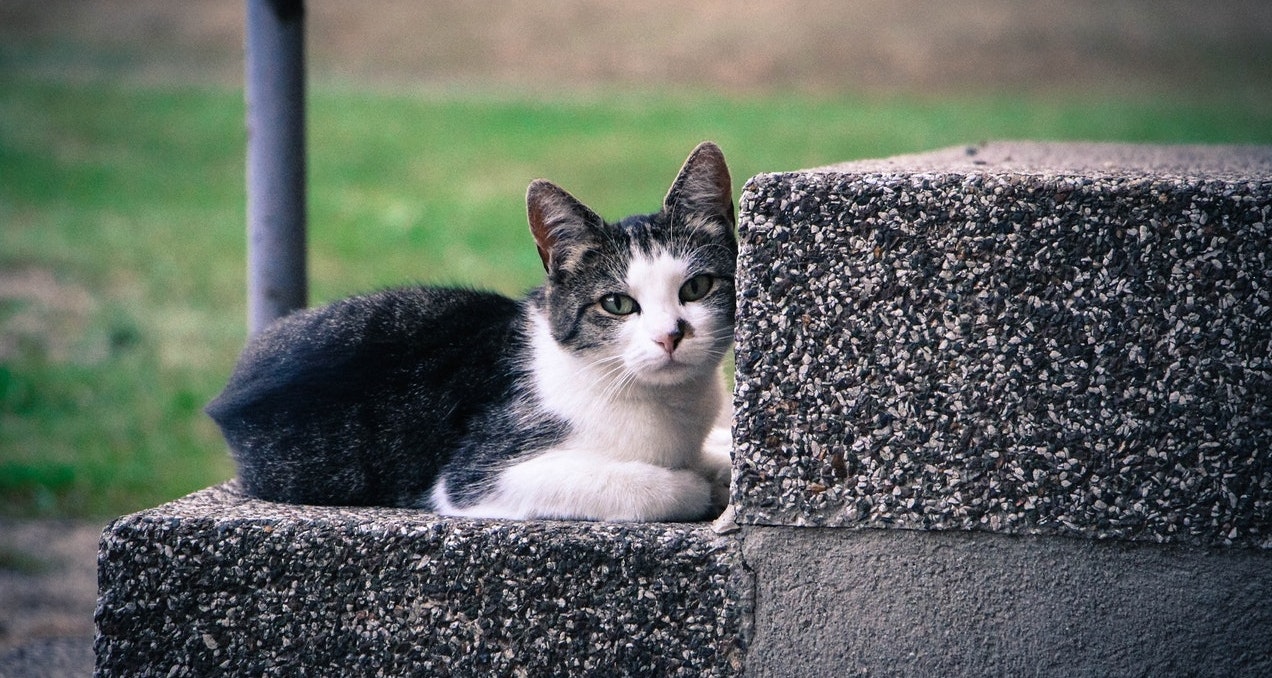Sign up for the daily CJR newsletter.
Let’s say you’re writing directions to a nondescript store that is diagonally across an intersection from a well-labeled gas station. How would you describe the store?
Would you write that “it’s kitty-corner from the gas station”? “Catty-cornered”? “Katter-corner”? “Cater-corner”? “Catercornered”?
Any of those could be correct, unless you’re speaking to someone not from North America. And if you are ailurophobic, don’t worry: It has nothing to do with cats.
The phrase first appeared in 1838 as “catty-corner,” according to the Oxford English Dictionary, but “katterkorner’d” was used in 1843. The Shropshire Word Book, an 1878 “Glossary of Archaic and Provincial Words,” included “cater-cornered as an adjective,” but also included “scatter-corner” as an adverbial form.
The OED also lists examples of “catacornered” and “cat-a-corner.”
RELATED: The phrase you’re three times more likely to write wrong
Many dictionaries prefer “catercorner” or “cater-corner,” though Merriam-Webster calls those spellings “less common variants” of “kitty-corner.” Webster’s New World College Dictionary, the one used by many news organizations, lists “kitty-cornered” and “catty-cornered,” but calls them variants of “cater-cornered.” The Associated Press Stylebook’s online “Ask the Editor” feature, though, says “AP stories use kitty-corner, or diagonal to, based on Webster’s entry.” The New York Times Manual of Style and Usage says to use “cater-corner, cater-cornered (not catty-corner).”
“Cater” is the true etymological parent of the phrase. From the French word “quatre,” or “four,” a “cater” was something placed “rhomboidally” or “diagonally,” the OED says. The original “cater” was related to dice: “‘Cater’ is an old word for the four dots on dice, which form diagonals,” says Brewer’s Dictionary of Phrases and Fables.
This is not the same “cater” as the act of having a third-party provide food for an event: That “cater” comes from a Middle English word meaning a “purchaser of provisions.” Though the OED’s American pronunciation for both is the same, with a long “a,” rhyming with “hater,” the “cater” in “catercorner” is more commonly pronounced to rhyme with “hatter.”
It is also not the same “cater” as in “caterwaul,” a loud, discordant noise. That “cater” is directly related to the sound of a group of cats at rutting time.
So how did cats get into “catercorner”? As the Grammarphobia blog says, “The feline-sounding version of the expression probably began with a mispronunciation of the relatively rare word ‘cater.’ Through a process that language types call folk etymology, a cat ended up in the corner.”
Garner’s Modern English Usage lists “kitty-corner” as the most common phrase, closely followed by “catty-corner,” with “cater-corner” a distant third. Even less common, Garner’s says, are the past participial forms, with “catty-corner” outperforming “catty-cornered” 5 to 1.
The OED says all of these variations are “U.S. and dial.,” meaning a proper Brit would use none of them. The fourth edition of Fowler’s Dictionary of Modern English Usage sniffs that the phrase “is in daily use in American English, but is virtually unknown in British English.”
That’s an oblique way of saying you can spell it any way you want, unless your style guide has a bias. Or, just say the store is “diagonally across the intersection from the gas station.” That would be the least catty way, and would avoid painting yourself into a corner.
ICYMI: The New York Times reporter who tweets like it’s going out of style
Has America ever needed a media defender more than now? Help us by joining CJR today.







